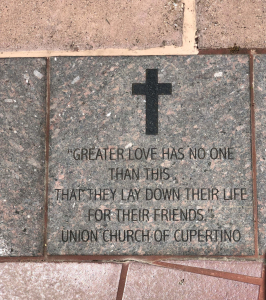Pentecost: Technology and Language
Fifty days exactly after Easter the Christian world celebrates Pentecost, or what we in the Armenian Church refer to as hogegaloust, which literally means, “the Coming of the Spirit. As the Book of Acts records, it was this day that, with the reception of the Holy Spirit, the Disciples of Jesus received the gifts by which they became, Apostles – Arakyal – the ones who were sent. In more conventional terms – it’s the Birthday of the Christian Church. The Sacred Body of Christ, which Jesus set up to preach the gospel to the poor; to heal the brokenhearted, proclaim liberty to the captives, and recovery of sight to the blind, and to set at liberty those who are oppressed…” (Luke 4)
One of the gifts of the Holy Spirit is that of communications – to be able to fulfill the Great Commission of Jesus Christ, to share the Gospel message with the world. As the earliest and most ancient of Tradition we are thankful to be able to accomplish this by the use of the latest language, that is technology. Today, on Pentecost, we celebrate our ability to engage in Apostolic evangelism in an electronic world. Our audience is expanding daily. We thank you for listening to our podcasts and broadcast, and sharing these messages with your family and friends. You’re plugging into new productions of podcasts, video lessons, daily messages, multiverse virtual presentations, virtual tours and much more, which are all spreading the message of peace and harmony through love as expressed and exemplified by Jesus Christ.
We take this opportunity to thank Archbishop Hovnan Derderian, the Diocesan Primate of the Western Diocese for his steadfast encouragement of this venture. In his words, Epostle is the future of the Church, available today! We will always strive to engage with new and innovative means by which to share the Gospel of love and hope. We thank you for taking this journey with us. May the blessings of the Holy Spirit be with you all, along with that of the Father and Son, now and always. Amen.



